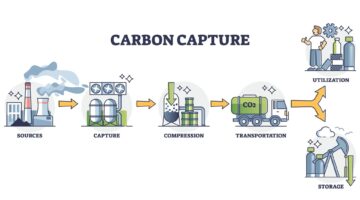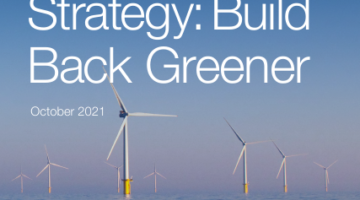
We’ve had a few days now to digest last week’s Budget announcement, and we’ve been thinking about what – if anything- was promised with regards to green energy and the environment. The government is under more pressure than ever to deliver environmental policies that give us any chance of meeting the UK’s climate change targets in 2020. The Clean Growth Strategy was launched last month, but it was generally found to be lacking in detail; this was the chance to tell us exactly how it would work.
For the first time in a while, we have a Chancellor who is vocal in stating the importance of protecting the environment:
”We cannot keep our promise to the next generation to build an economy fit for the future, unless we ensure the planet has a future.’
In rhetoric at least, the Conservative government has woken up to the irony underpinning their economy-driven policies. Philip Hammond’s words sound promising – but does he actually follow up?
Electric vehicles
First of all, some good news: the Chancellor is happy to admit that electric cars are the future, and willing to pledge serious money to bring them to a wider audience. £400million has been allocated for the rollout of the UK’s charging network, and £100m towards public grants for buying new models. This acknowledges that the prohibitive cost of buying an electric car is increasingly the only thing putting off many would-be EV drivers.
Decreasing the number of petrol and diesel cars on the road as soon as possible can only be a good thing, reducing carbon emissions and making smoother the transition to the ban in 2040.
Air pollution
Air pollution is perhaps the most immediate environmental challenge the government faces, with millions of people in the UK routinely exposed to illegal levels every day. The Chancellor addressed it to some extent with the announcement of a ‘£220million clean air fund’. However, some are arguing that this won’t go far when split across the whole of the country; and it deflects responsibility by leaving the problem firmly on their doorstep of local authorities.
Plans were also unveiled for taxing the most polluting diesel cars – but the announcement weirdly didn’t extend to diesel vans, literally admitting it was so as not to displease ‘white van men and women’.
Plastic
Inspired by Blue Planet‘s exposure of the scale of the problem of plastic waste in oceans, Hammond has promised to ‘investigate’ the potential of taxing single-use plastic items. The 5p plastic bag charge has made a big difference in the UK, so a similar scheme would probably work – if bottled water was made more expensive, for instance, people might be encouraged to use reusable bottles instead…
However, it’s one thing saying you’ll look into something, and another actually implementing changes – it will be interesting to see whether or not we hear anything about a plastic tax in the coming months.
Clean energy
The Budget didn’t mention anything specific about supporting the UK’s transition to renewables, and no new funds will be allocated to support clean power auctions (which could make new renewable energy projects possible).
Interestingly, there was no mention of Swansea Tidal Lagoon. Its future is looking more and more uncertain, despite the Conservatives backing it as a potential economic game-changer.
Home energy efficiency
It has been widely pointed out that that the UK could use far less power, lessen fuel poverty and reduce carbon emissions if the government educated people about saving energy in the home, and helped with the costs of installing energy efficiency measures. It’s frustrating that the Budget failed to mention domestic energy efficiency at all, and made no new proposals for allocating money to the cause!
Will the new budget make a difference to green causes in the UK?
Much like the clean air plan, the Budget announcement represented a step forward in some respects, while other important things were completely ignored. Although there was nothing mentioned that sounded like it could have a particularly negative impact, there is little that will make a big difference when it comes to protecting the environment, and avoiding an energy gap in the UK.












No Comments yet! Be the first one.